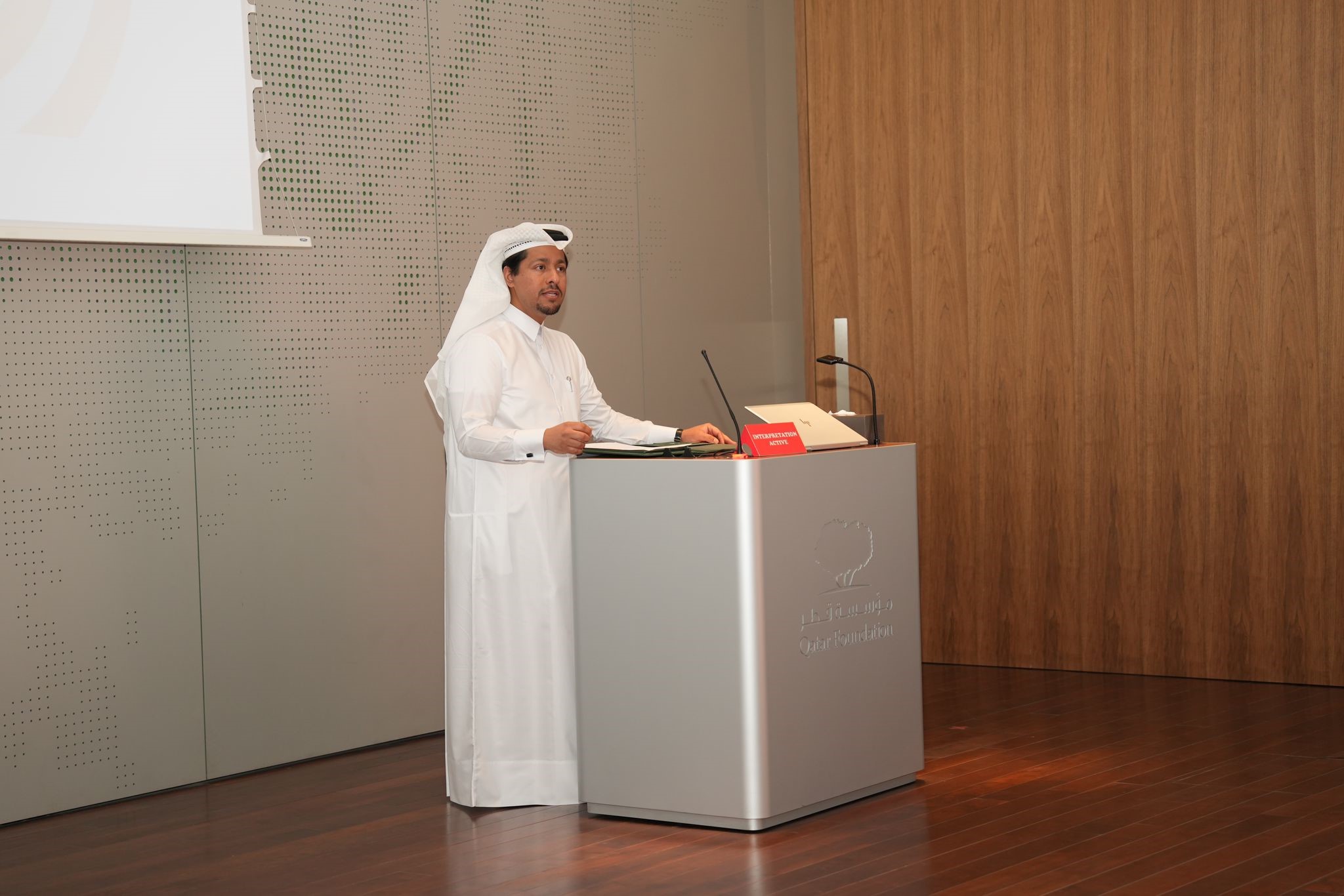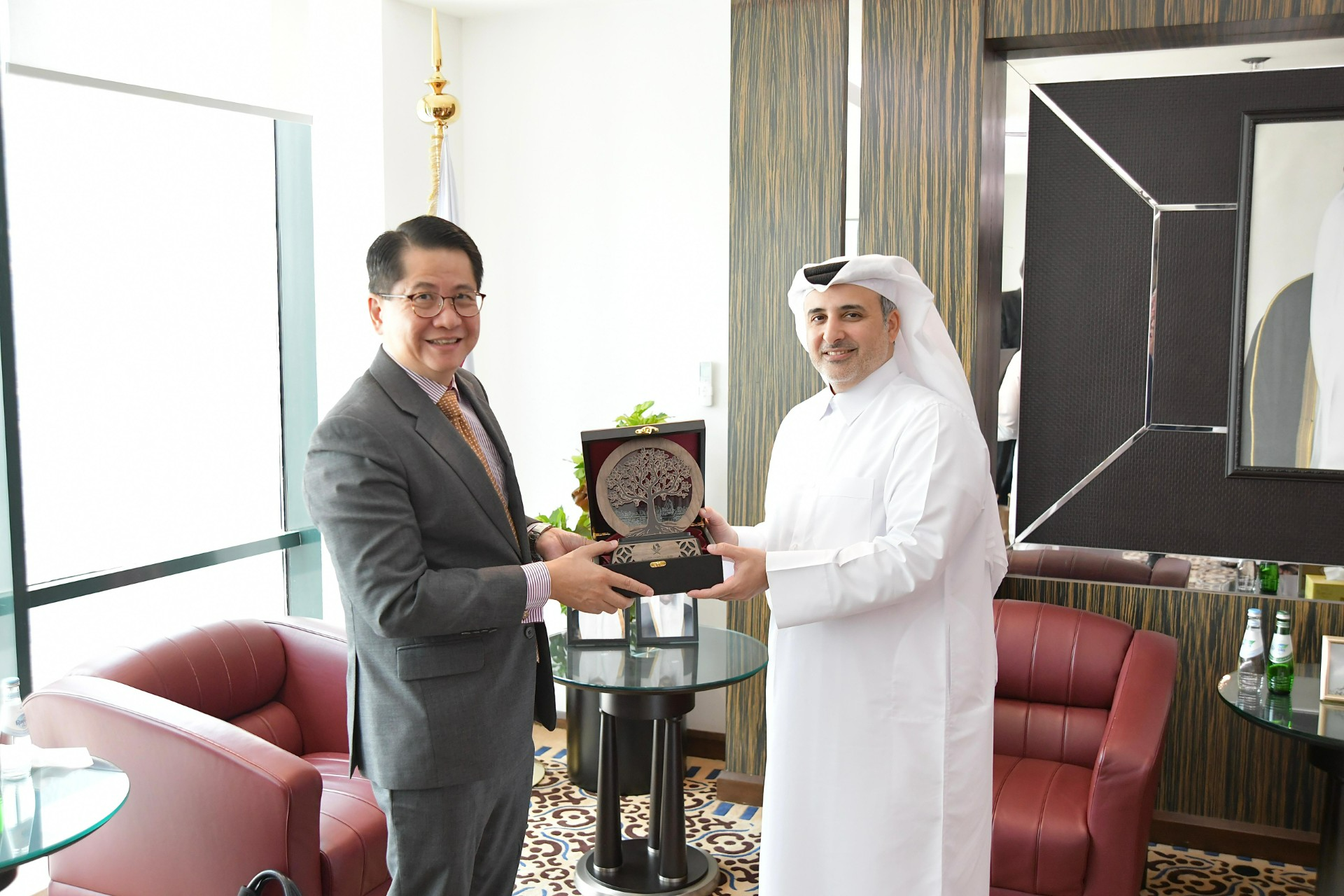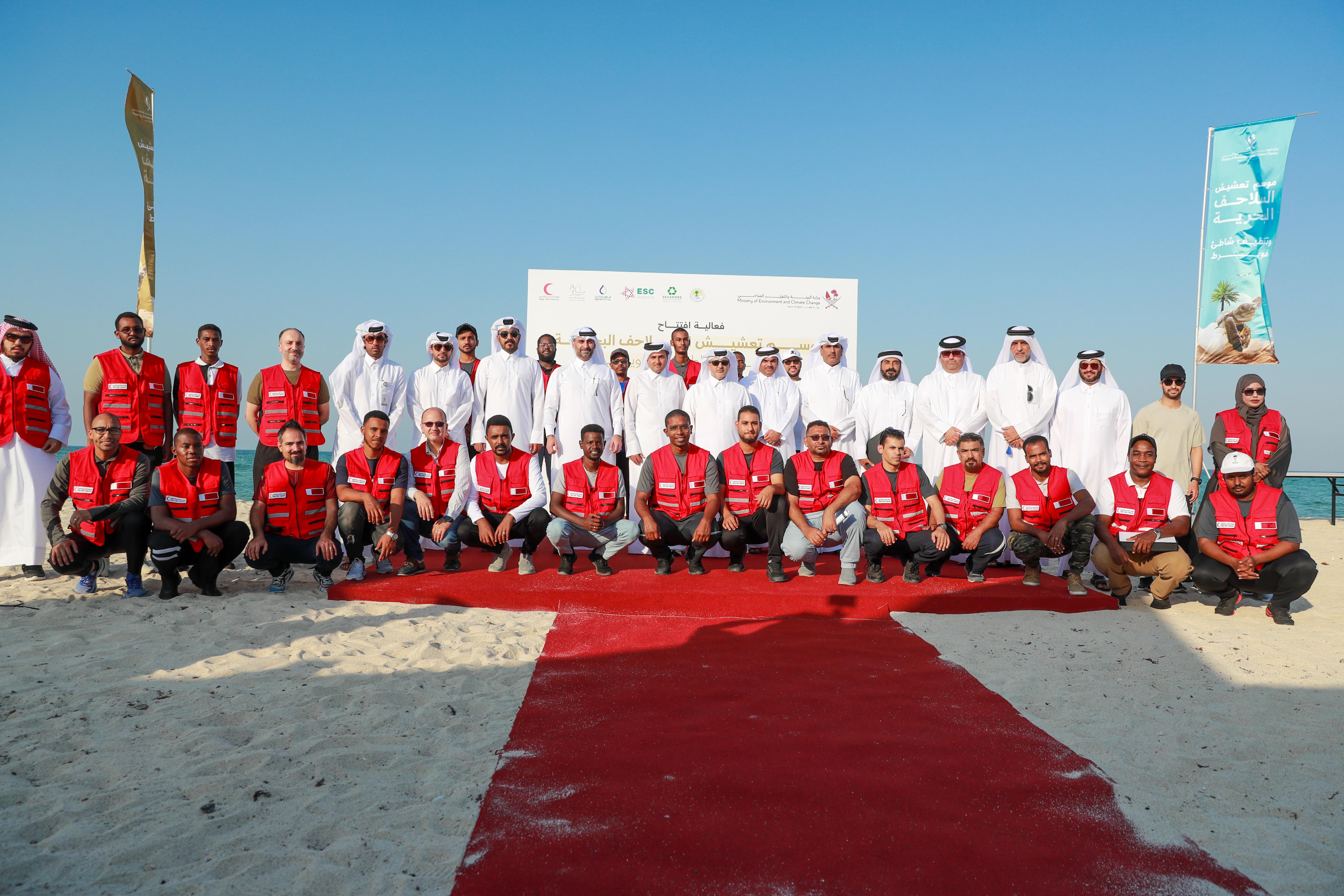
In collaboration with “Earthna” initiative, the Ministry of Environment and Climate Change organized a workshop to introduce the “Knowledge Gateway.”
The Green Development and Environmental Sustainability Department at the Ministry of Environment and Climate Change, in collaboration with “Earthna” Center for Sustainable Policies, organized a workshop today to introduce the “Knowledge Gateway” on climate change.
The workshop took place at the Education City Auditorium in Qatar Foundation for Education, Science, and Community Development and was attended by many representatives from government entities, academics, research institutions, and private sector organizations and non-governmental organizations.
The workshop was presented by Sheikh Dr. Saud bin Khalifa Al-Thani, Director of the Green Development and Environmental Sustainability Department. The workshop aimed to introduce the audience to the objectives of launching the Knowledge Gateway and facilitate their access to accurate information from reliable sources. It also aimed to familiarize all stakeholders with Qatar’s Knowledge Gateway for Climate Change and its goals, increase awareness of the need for accurate data and information, and encourage stakeholders to contribute and add value to the development of the Knowledge Gateway. Feedback from stakeholders was also sought to verify the accuracy of the Climate Change Knowledge Gateway and improve its dissemination to the public.
During the workshop, there was a meaningful discussion between the attendees and the workshop presenters. They raised several questions regarding the specific objectives of the Knowledge Gateway and the impacts of climate change on Qatar. They also inquired about the measures and precautions taken by the country to mitigate and adapt to these impacts in the coming years.
In this context, Sheikh Dr. Saud bin Khalifa Al-Thani, Director of the Green Development and Environmental Sustainability Department, emphasized that climate change is a global issue and one of the most pressing challenges of our time. To mitigate and adapt to its impacts, accurate and up-to-date information about climate change is crucial. Such data plays a crucial role in informing policy development and decision-making at both the national and international levels.
He also emphasized that policymakers rely on data to understand the magnitude and urgency of climate change, evaluate the effectiveness of current policies, and formulate new strategies. Obtaining data on greenhouse gas emissions enables energy consumption optimization and contributes to changes in land use. This helps in setting emission reduction targets, designing climate mitigation policies, and assessing progress towards climate goals.
Sheikh Dr. Saud bin Khalifa Al-Thani further highlighted that the Knowledge Gateway will contribute to providing an insightful long-term perspective on possible future scenarios. It will offer consistent data for comparisons and facilitate knowledge sharing, supporting collaborative efforts to address climate change collectively. At the national level, the Knowledge Gateway can be used as a fundamental tool to provide such information to ministries (policymakers), academic and research institutions, private and public sector organizations, as well as non-governmental organizations.
The Director of the Green Development and Environmental Sustainability Department also highlighted that developing a national climate change portal will facilitate knowledge exchange and collaboration among various stakeholders, including policymakers, researchers, and the public. It will serve as a central repository for climate change-related information, providing easy access to critical data, enhancing public awareness, and offering a user-friendly and information-rich platform for the public to understand the impacts of climate change and take mitigation measures.
Regarding the National Climate Change Strategy, Sheikh Dr. Saud Al-Thani highlighted that the strategy works towards promoting sustainable economic growth, reducing greenhouse gas emissions, and enhancing the country’s capacity to adapt to climate change. He emphasized that the development of a national climate change portal plays a crucial role in achieving these objectives by providing stakeholders with access to the latest research and best practices in climate change mitigation and adaptation. Furthermore, the portal can serve as a platform for stakeholders to share experiences and ideas that can contribute to the development of climate change policies and programs.
Regarding international cooperation, he pointed out that the portal can facilitate international collaboration on climate change issues and play a crucial role in global efforts for mitigation and adaptation. The portal can serve as a platform for Qatar to share its expertise and experience with other countries. Additionally, the portal can also play a significant role in attracting interest for research collaborations and groundbreaking projects from around the world, which can enhance Qatar’s own efforts in addressing climate change.
He also emphasized that the development of the national-level Climate Change Portal aligns with Qatar’s Vision 2030, which aims to enhance sustainable development and protect the country’s natural resources. It supports this vision by providing a platform for stakeholders to access and exchange information related to sustainable development and environmental protection.


